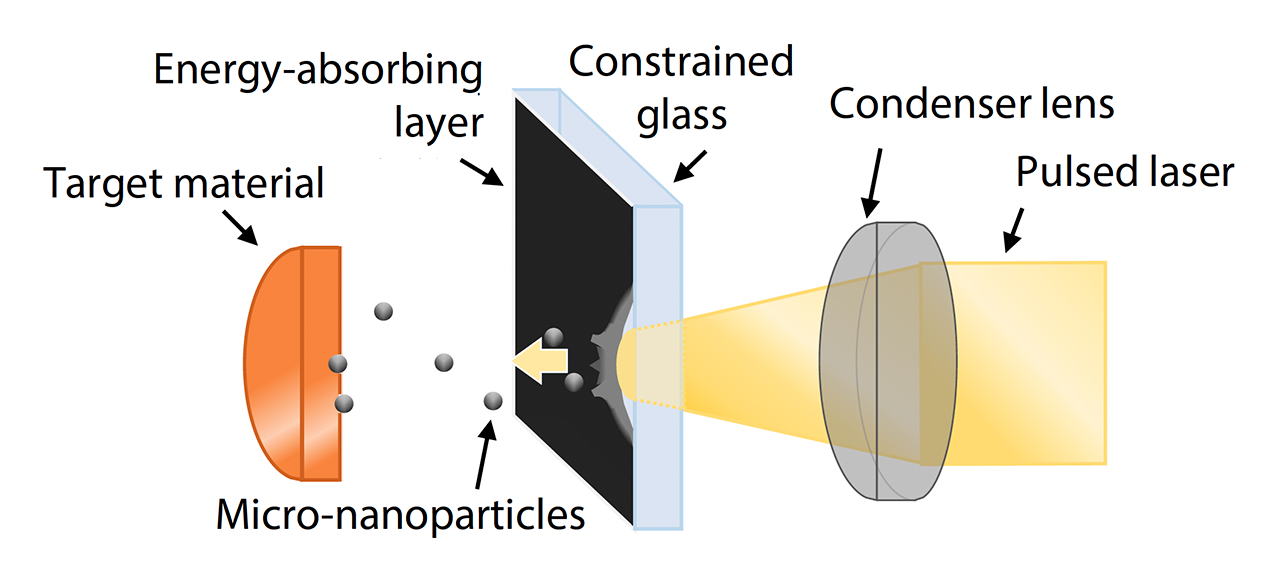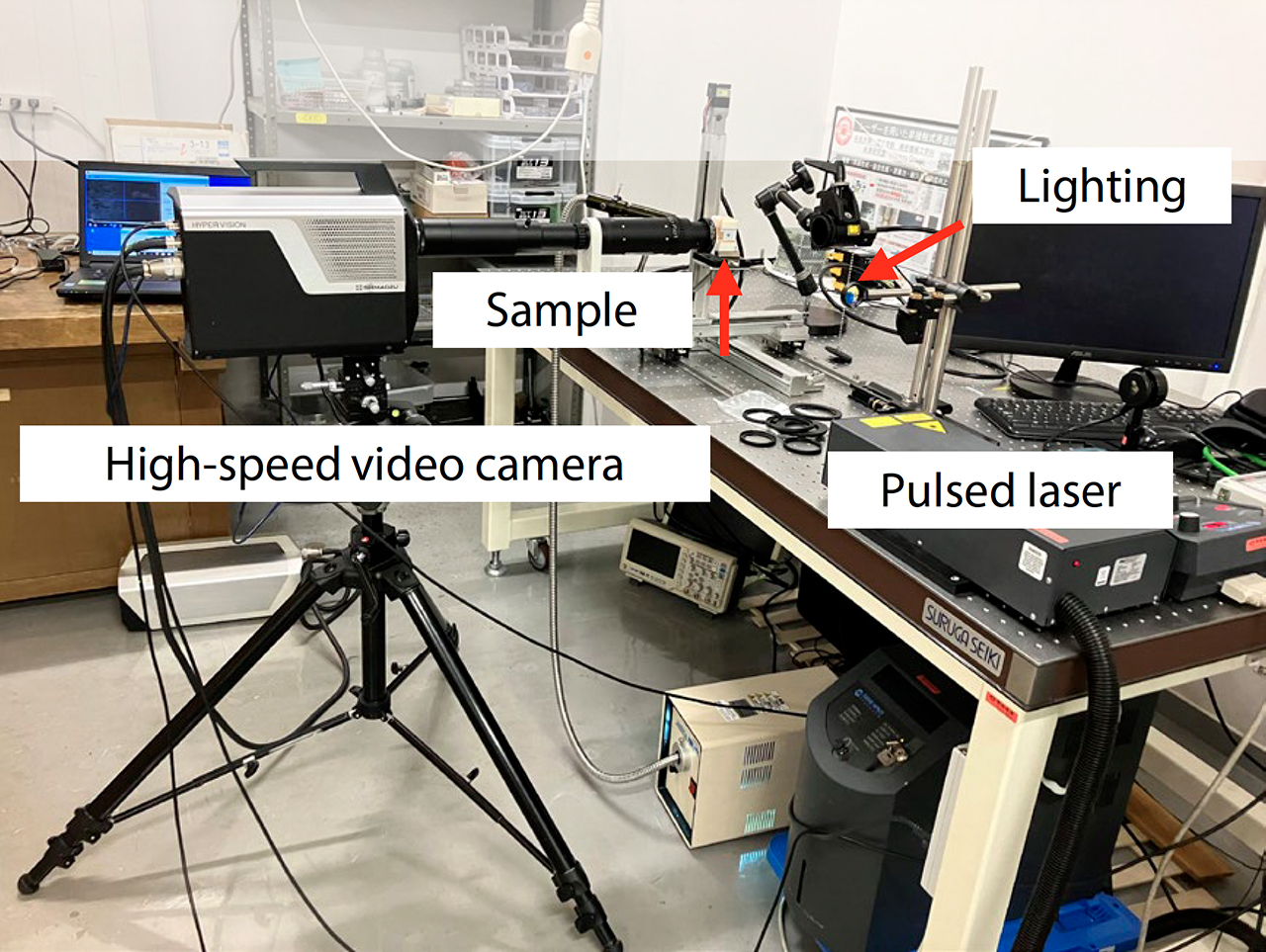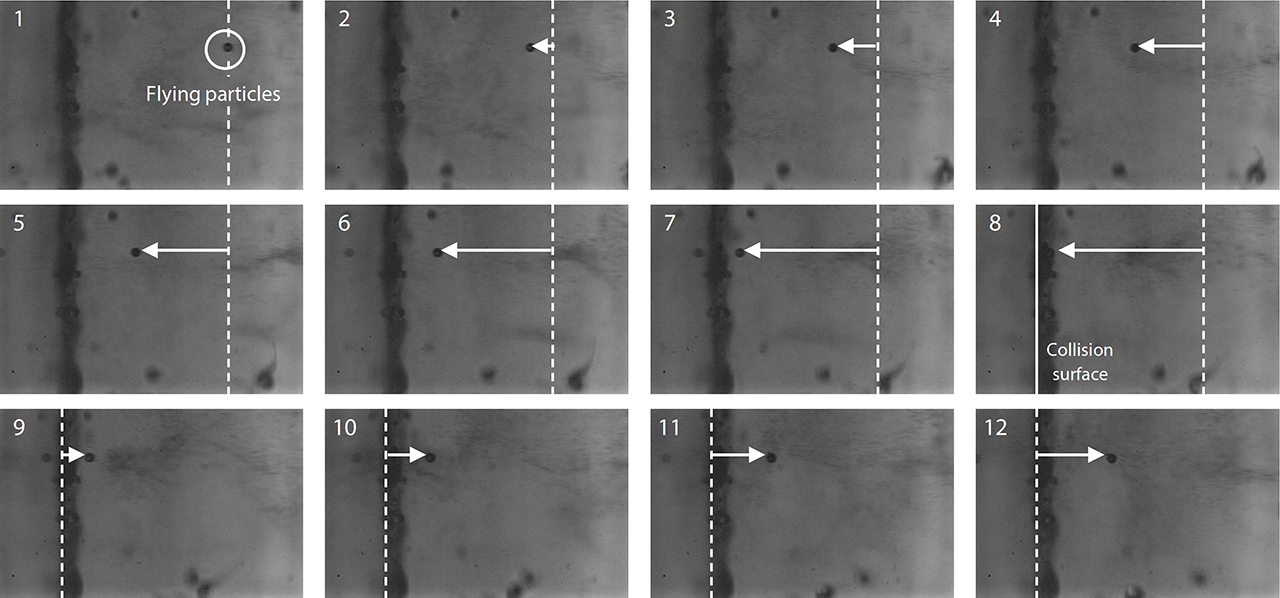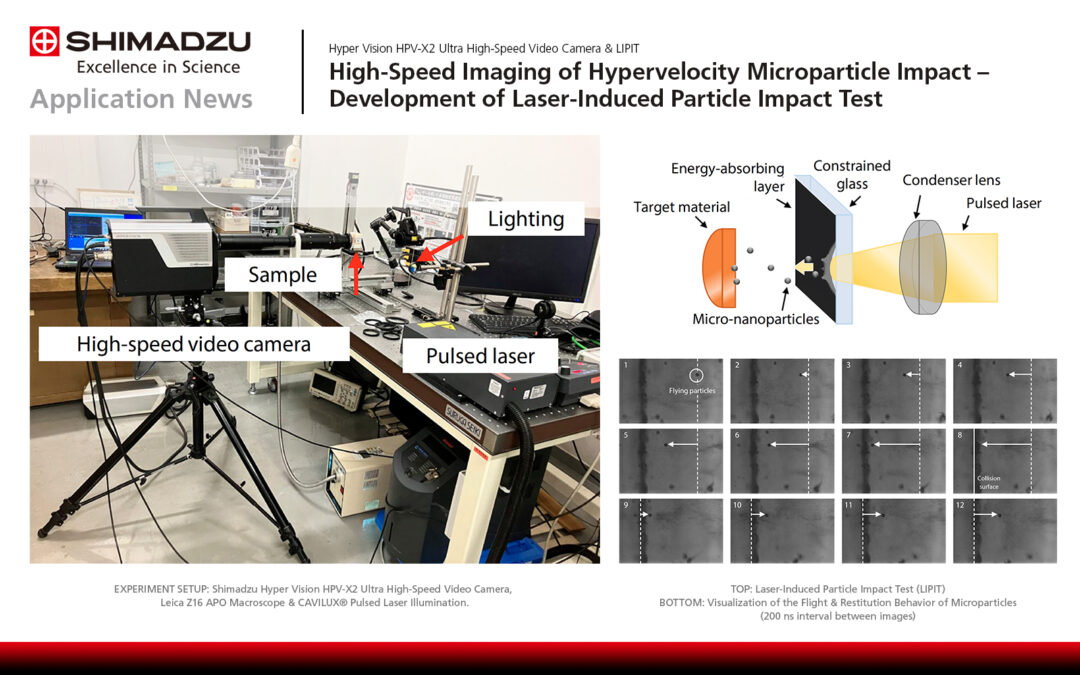Application News – September 19, 2023
High-Speed Imaging of Hypervelocity Microparticle Impact – Development of Laser-Induced Particle Impact Test
by Akio Yonezu, Miki Kajihara, Fumiaki Yano, & Yuki Nishikawa
User Benefits:
- Shimadzu Hyper Vision HPV-X2™ ultra high-speed video camera enables high-speed imaging up to 10 Mfps.
- It can image the flight behavior of microparticles to several tens of μm in high resolution.
Equipment:
- Shimadzu Hyper Vision HPV-X2 ultra high-speed video camera
- Leica Z16 APO Manual 16:1 Macroscope
- CAVILUX® pulsed laser illumination
Introduction
The macroscopic plastic deformation of metals and polymer materials is known to depend on the strain rate. This is because it greatly depends on the local deformation behavior of the microscopic structure of materials. Although the plastic deformation behavior in the ultra-high strain rate range of polymer materials is particularly rate-dependent, it has not been clarified. Therefore, a mechanical investigation is considered to be important in the development of lightweight and shock-resistant materials. For this reason, the Laser-Induced Particle Impact Test (LIPIT) was developed to achieve high-speed flight and impact experiments of micro-nanoparticles.1) In addition, the use of the high-speed video camera Shimadzu Hyper Vision HPV-X2, which has recording speeds of up to 10 Million frames per second, enabled detailed observations of microparticle flight and collision behavior in LIPIT.
This article describes how a high-speed video camera was used to image the high-speed flight and collision of microparticles. First, impact experiments were conducted on polymer materials using various kinds of particles to investigate the shape of impact marks using LIPIT. Then nanoscale analysis was performed on high-speed collision phenomena using the coarse-grained molecular dynamics method and discussed the mechanism of plastic deformation behavior from the viewpoint of molecular chain deformation.

Figure 1: Laser-Induced Particle Impact Test (LIPIT)

Figure 2: Imaging with High-Speed Video Camera

Figure 3: Visualization of the Flight and Restitution Behavior of Microparticles
(imaging interval between images was 200 nanoseconds)
Learn more about ultra high-speed imaging solutions:
Contact a Hadland Imaging representative to learn more about the Shimadzu Hyper Vision HPV-X2 & everything you need to get the job done right.
Keywords: CAVILUX pulsed laser illumination, hypervelocity microparticle impact, Laser-Induced Particle Impact Test (LIPIT), Leica Z16 APO Manual 16:1 Macroscope, Shimadzu Hyper Vision HPV-X2 ultra high-speed video camera, Ultra High-Speed Imaging
